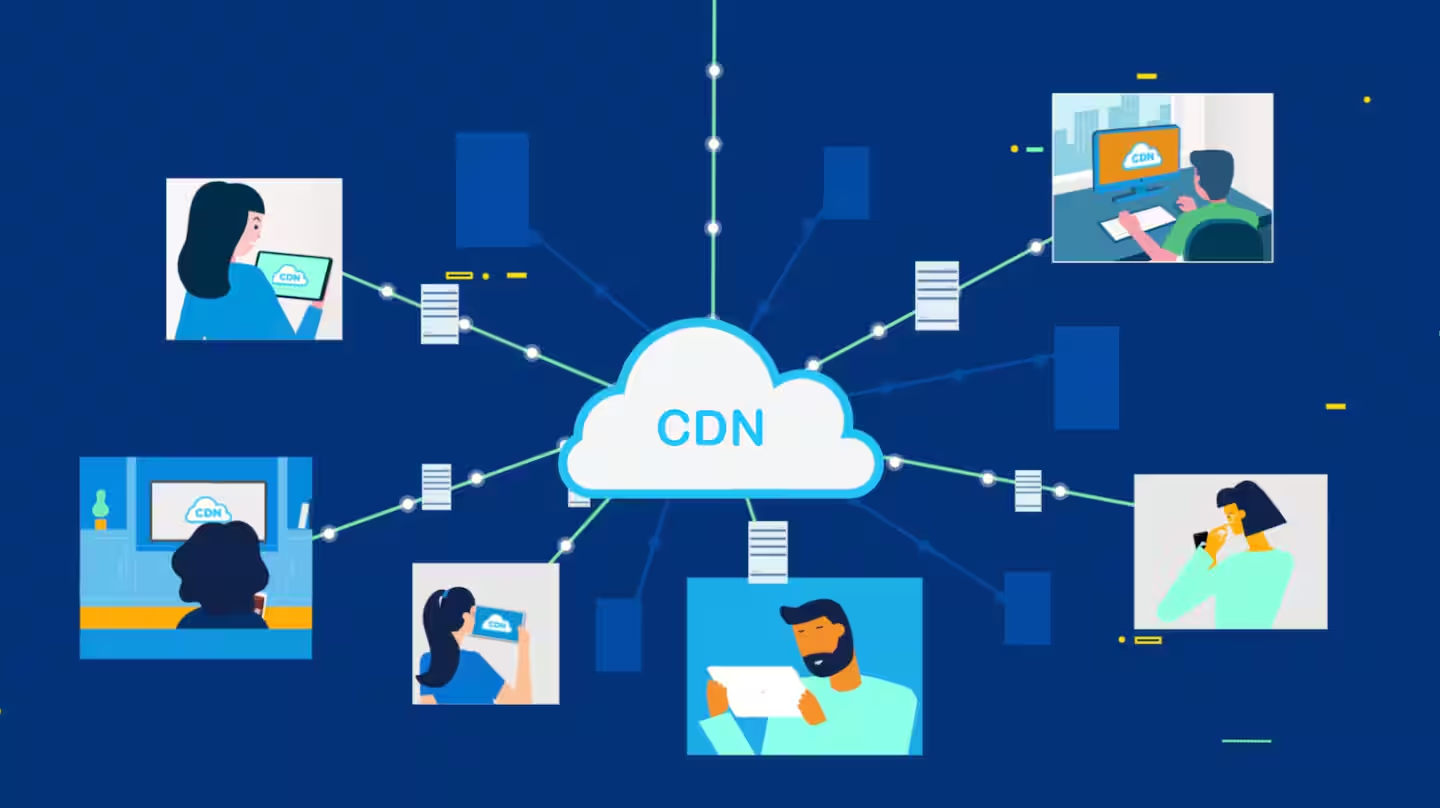A Content Delivery Network (CDN) is a geographically distributed network of interconnected servers designed to dramatically improve your website’s speed and performance. Think of it as a global network of digital warehouses strategically positioned around the world, each storing copies of your website’s content to deliver it lightning-fast to users wherever they are located.
When someone visits your website, instead of their request traveling thousands of miles to your origin server, a CDN serves the content from the nearest server location. This proximity-based delivery system reduces latency, minimizes data travel time, and creates a significantly faster browsing experience for your visitors. Whether your content includes images, videos, HTML files, stylesheets, or JavaScript, a CDN handles all types of web assets efficiently.
The importance of CDNs extends far beyond just speed improvements. In today’s digital world, website performance directly impacts user experience, search engine rankings, and ultimately your business success. Search engines like Google prioritize fast-loading websites in their rankings, making CDN implementation a crucial SEO strategy. Studies show that even a fraction of a second delay in page load times can lead to user drop-offs, with visitors bouncing to competitor websites.
CDNs work by caching your website’s content across multiple edge servers worldwide. When a user requests your webpage, the CDN’s management software automatically calculates the nearest server location and delivers the cached content from that point. This process happens transparently to users while dramatically reducing bandwidth consumption, server load, and operational costs. Additionally, CDNs provide enhanced security features, protecting against DDoS attacks and improving website reliability. For businesses operating globally, CDNs ensure consistent performance regardless of user location, making them an indispensable component of modern web infrastructure.
How CDNs Accelerate Website Performance
CDNs boost website speed through several key mechanisms that work together to optimize content delivery. The primary method involves strategic content caching across geographically distributed servers. When your website’s files are stored on servers closer to end users, the physical distance data must travel is significantly reduced, resulting in faster response times.

File size optimization represents another crucial performance enhancement technique. CDN providers use advanced compression algorithms and machine learning technologies to reduce file sizes without compromising quality. This optimization, combined with solid-state drives and intelligent load balancing, ensures that data reaches users as quickly as possible.
The reduced server load on your origin server is an often-overlooked benefit that contributes to site speed. By distributing traffic across multiple edge servers, CDNs prevent your main server from becoming overwhelmed during traffic spikes. This load distribution maintains consistent performance even during high-demand periods, ensuring your website remains responsive when it matters most.
SEO Benefits and Business Impact
CDN implementation delivers substantial SEO advantages that directly translate to improved search rankings and business outcomes. Page speed optimization is a confirmed Google ranking factor, and CDNs can dramatically improve Core Web Vitals scores. Faster loading times lead to better user engagement metrics, reduced bounce rates, and increased conversion rates.
The global accessibility provided by CDNs ensures that international visitors experience the same fast loading times as local users. This consistent performance across different geographical regions expands your potential market reach and improves user satisfaction worldwide. For e-commerce businesses, this translates directly to increased sales and customer retention.




